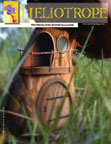
A sleek Mercedes glides through falling snow towards the lodge gates of a sprawling country house. Inside, Diane, a beautiful woman, and Richard, the man she once loved, head towards their fate. In the Christmas weekend that follows, which is filled with tinsel and pine and fine whisky and presents and the joy of the hunt, they will fall in love again. And one will betray the other. And neither will survive.
Weihnachtabend made an immediate impression on me, and reading it again now as I have done many times over the years, that impression remains. It isn’t the idea around which the story is framed — even to me as a teenager when I first encountered this story, the idea of an alternate England which the Nazis had succeeded in invading was hardly ground-breaking — but pretty much everything else about Roberts’ story still feels both vivid and groundbreaking. Heartbreaking, as well.
Roberts was an artist as well as a writer, and the strong visual sense is one of his great strengths. The sense of that car moving through the snow at the start of the story, and then the country house at which it arrives, and the whole lovely idea of a firelit Christmas, the smooth luxury and easy indulgence of the privileged few in a dictatorship, is brought deliciously to life. The beautiful women, the guns, the cars, the powerful men and the fine wines, are all superbly undermined by the sort of genuine unease which action writers rarely seem capable of achieving. And the action in this story is subtly achieved, and thus made all the more compelling and, ultimately, horrific.
I used to wonder when I first read Roberts how it was that he was able to make the colours in his best work seem so vivid, the feelings of his characters so real, the sense of place so intense. Now that I’ve read a lot more widely, I understand that Roberts cared about aspects of writing which are often neglected in the genre. His choice of words, the way he reveals and describes things, how he lets his characters talk and react — all these things are accomplished with a verve and precision which is rare in any kind of literature, and especially in SF. Above all, though — or moving subtly below these strengths — is an almost preternatural ability to envisage things as if they were real. I’m not simply talking about the brisk solidity of his descriptions, or his fine attention to telling detail, although these are amongst Roberts’ characteristic strengths. What I’m really attempting to describe is that deeper sense of real people facing real choices in a world which seems even more vivid and complex, and yet ultimately as inexplicable, as our own. There are no simple remedies, no easy answers, no magic bullets or handy escapes. Above all, in his best work, there’s Roberts’ almost supreme ability to write about women, and about love, and about sex.
Amongst male writers, Thomas Hardy’s women would be the clearest parallel to what Roberts achieved; characters such as Tess D’Urberville and Bathsheba Everdene. Roberts also loved and commemorated the same landscapes that Hardy did, and had a similarly mordant view of God and humanity, and the shocks and ironies of chance. Although both writers could sometimes fall victim to cutesy wish-fulfilment, their passion for beauty and their anger at the world’s wrongness gives extraordinary power to their best work.
The key scene in Weihnachtabend which lingers in the mind — in part, I’ll admit, because I first read it as a male adolescent — is the love-making between Richard and Diane. As always with Roberts when he’s at his best, he approaches things in ways which are poetic, sensual and oblique. He fragments the moments into disassociated images and feelings which come back to haunt Richard as the story develops. Much, indeed in the manner of Nicholas Roeg’s film Don’t Look Now; for me, another key influence.
I often cite Keith Roberts as an inspiration for my work (and life) as a writer, and Weihnachtabend, as much as anything he ever wrote, is the reason why. I first encountered this superb short story back in my teens; an age when the place where I bought or borrowed each particular book, and then where I read it, often ended up almost as engraved upon my mind as the actual words on the page. So, for the record, I should say that I bought my paperback copy of New Worlds 4 from a carousel at a newsagents on the high street of Shirley, my home town, and that I read Weihnachtabend on a coach trip to the Cotswolds on what I think was my fifteenth birthday. And I still have it now. Many books are disposable. Some aren’t. Some stories you can loose or forget about. Others follow you into your thoughts and hopes — your fears and dreams.


